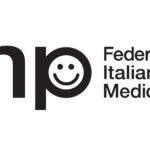
Do not use oral corticosteroids for fever management
Corticosteroids have a strong antipyretic and anti-inflammatory effect. However, their use must be reserved to conditions in which the severity of the anti-inflammatory response threatens the child’s health. These drugs must not be used for treatment of a child with fever due to frequent upper-respiratory infections typical of pre-school age. Systemic corticosteroid medications act by exercising a strong immunosuppressive effect and it could cause opportunistic infections, and/or it could worsen viral infections. The decision of prescribing a corticosteroid therapy must consider potential risks, and it should strongly be avoided treating fever of unknown origin (FUO).
Sources
1. National Institute for Health and Care Excellence. Feverish illness in children (CG160). May 2013. http://guidance.nice.org.uk/CG160 (Accessed on June 14, 2018).
2. Section on Clinical Pharmacology and Therapeutics, Committee on Drugs, Sullivan JE, Farrar HC. Fever and antipyretic use in children. Pediatrics 2011; 127:580.
3. Chiappini E, Venturini E, Remaschi G, et al. 2016 Update of the Italian Pediatric Society Guidelines for Management of Fever in Children. J Pediatr 2017; 180:177.
4. Brunton L. ,Chabner B.A., Knollman B. Goodman and Gilman's The Pharmacological Basis of Therapeutics, Twelfth Edition 12th Edition
Attention. Please note that these items are provided only for information and are not intended as a substitute for consultation with a clinician. Patients with any specific questions about the items on this list or their individual situation should consult their clinician.


Recent Comments